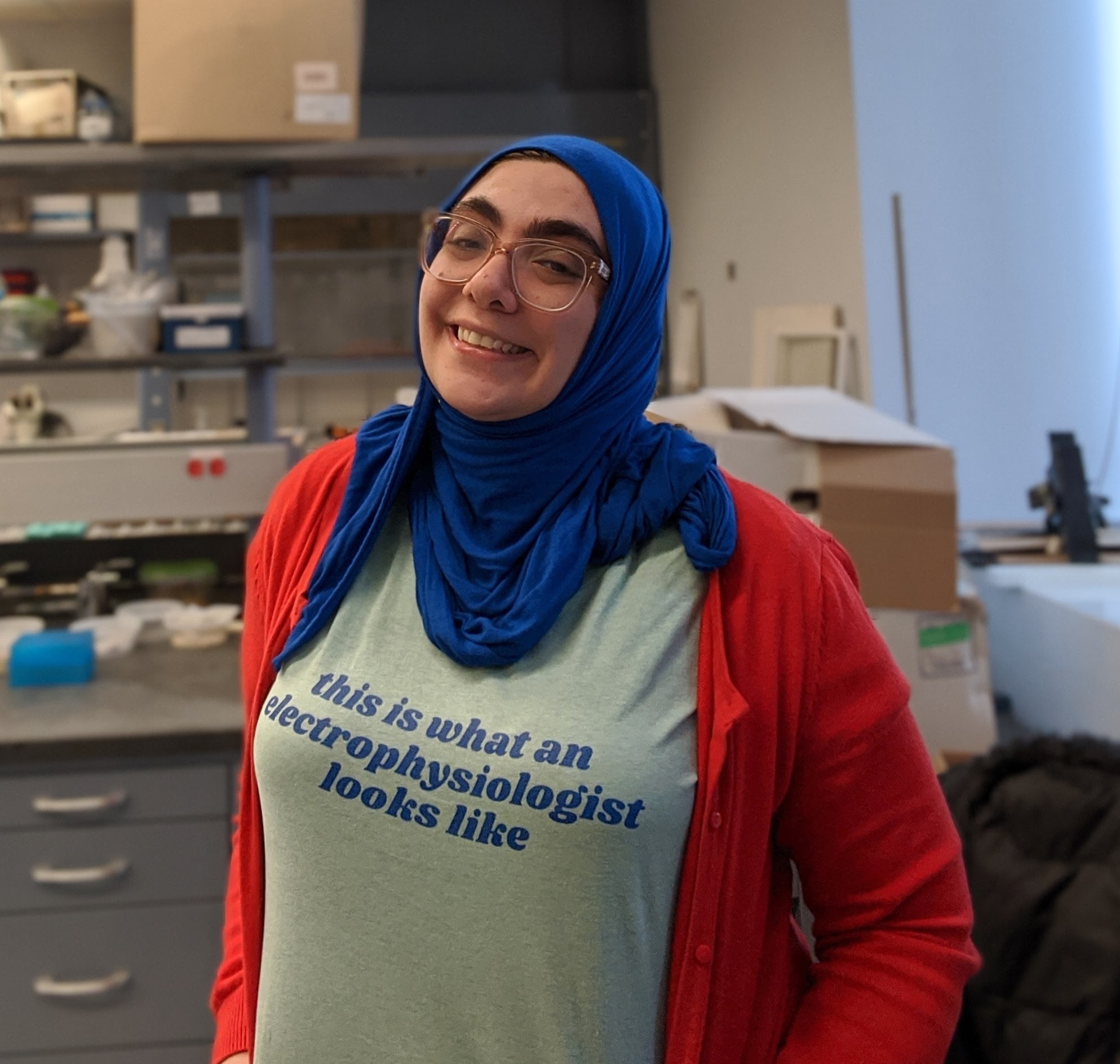Reviewer Spotlight: Dr. Nour Al-muhtasib
The quality of eNeuro depends on the effort that is generously contributed by our reviewers, who lend their expertise and time helping to ensure we publish great science. This Reviewer Recognition series introduces the research of selected reviewers, as well as their strategies for approaching peer review of a paper. Dr. Nour Al-muhtasib is currently working as a Postdoctoral Fellow in Dr. Nii Addy's lab in the Department of Psychiatry at Yale School of Medicine. She is studying how synaptic physiology is altered in a rat model of cocaine addiction and withdrawal.
"Summarizing what the manuscript is saying in my own words helps me in the reviewing process. It allows me to see if the manuscript gives me enough information to do so and if the information is strong enough."

What research questions are you currently working on?
I am studying how synaptic physiology is altered in a rat model of cocaine addiction and withdrawal. My work focuses on the VTA, a brain structure important for reward and drug addiction. In particular I am interested in some of its neurons which release dopamine. Basically, I want to understand how a certain protein which exists on these subset of neurons is changed when an animal is in withdrawal or craving a drug (cocaine). If the levels of this protein are changed, then this could have an effect on how the neurons act and talk to other neurons.
How did you become interested in this line of research?
Substance use disorders have always been very interesting to me. Moreover, synaptic physiology and how neurons communicate, and form connections is extremely fascinating.
What do you do when not in the lab?
I love to teach and am currently pursuing teaching positions. I truly love teaching science. Outside of science and professional work, I enjoy baking, spending time with my cat, and organizing (really).
What advice would you share with new reviewers?
Summarizing what the manuscript is saying in my own words helps me in the reviewing process. It allows me to see if the manuscript gives me enough information to do so and if the information is strong enough.
How do you approach a review?
I read the manuscript, summarize it in my own words, write down minor concerns, then tackle the major concerns.
What have you learned over the years that has made you an effective reviewer?
It's okay to say no if the manuscript is outside the scope of your work. A good reviewer is one that will be able to give good feedback.
You are also a graduate of SfN’s Reviewer Mentor Program (RMP). What did you learn during that mentored review that you find the most valuable in your work as a reviewer now? Would you recommend the program?
The program was wonderful. My mentor during the program, Dr. Savio Chan, taught me how to approach reviewing a manuscript. I learned to break up reviewing into multiple segments such as major and minor concerns. When first starting out this helps you not get tripped up on the minor issues. I definitely recommend the program!
Anything else you want to share?
I do want to take this moment to share that the past two years have been extremely difficult for many because of the pandemic. I want to be open and honest about this because I think many people are in the same boat and might feel alone. I am not as far along as I would like. I want other trainees to know you are not alone. The past two years have definitely set many of us back and it's okay — we got this!
Lab website: https://medicine.yale.edu/lab/addy/
Twitter: @Nouronal
Personal website: https://www.nouronal.com/
Learn more:
Learn more about SfN's Reviewer Mentor Program.
FOLLOW US
POPULAR POSTS
TAGS
CATEGORIES


 RSS Feed
RSS Feed




